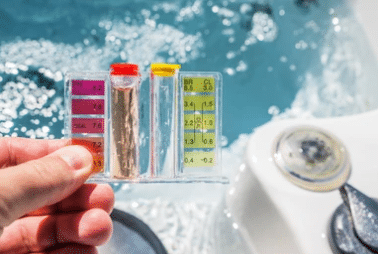Understanding Water Quality Meters: A Key Tool for Clean and Safe Water
Access to clean, safe water is essential for health, industry, and the environment. Monitoring water quality is critical in ensuring that water meets safety standards for drinking, agriculture, manufacturing, and ecological purposes. Water quality meters are indispensable tools for assessing various parameters of water quality quickly and accurately. Let’s dive into what water quality meters are, their importance, and how to use them effectively.
What is a Water Quality Meter?
A water quality meter is a device designed to measure and monitor the physical, chemical, and biological properties of water. These portable or stationary devices are equipped with sensors and probes to analyze parameters such as pH, dissolved oxygen (DO), turbidity, conductivity, and temperature. Advanced models may also measure nitrate levels, chlorine content, and total dissolved solids (TDS), offering comprehensive insights into water quality.
Why Are Water Quality Meters Important?Ensuring Health and Safety
Contaminated water can harbor harmful substances, from bacteria and viruses to heavy metals and chemicals. Regular monitoring with water quality meters helps identify potential risks and ensures compliance with safety standards for drinking water, aquaculture, and food processing.
Supporting Environmental Conservation
Water quality meters play a vital role in monitoring rivers, lakes, and oceans, allowing researchers and environmentalists to track pollution levels, assess ecosystem health, and implement conservation measures.
Enhancing Industrial Processes
Industries such as power generation, pharmaceuticals, and manufacturing require precise water quality measurements for processes like cooling, heating, and production. Water quality meters ensure that water meets the necessary specifications, improving efficiency and product quality.
Agricultural Applications
For irrigation and livestock, water quality is critical. Parameters like salinity, pH, and nutrient content affect crop yields and animal health. Water quality meters help farmers manage resources effectively.
Types of Water Quality MetersSingle-Parameter Meters
These meters focus on measuring one specific aspect of water quality, such as pH or dissolved oxygen. They are ideal for targeted analysis in smaller-scale applications.
Multi-Parameter Meters
As the name suggests, multi-parameter meters measure several water quality metrics simultaneously, making them versatile tools for comprehensive analysis in laboratories, fieldwork, or industrial settings.
Handheld Meters
Compact and portable, handheld water quality meters are perfect for on-site testing. They are commonly used in field research, environmental monitoring, and outdoor water testing.
Benchtop Meters
Designed for laboratory use, benchtop meters offer high precision and are suitable for detailed analysis in controlled environments.
Key Parameters Measured by Water Quality MeterspH Levels
pH measures the acidity or alkalinity of water. It’s crucial for drinking water safety, agriculture, and industrial processes.
Dissolved Oxygen (DO)
DO levels indicate the amount of oxygen available in water, essential for aquatic life and industrial cooling systems.
Turbidity
Turbidity measures water clarity by assessing the presence of suspended particles. High turbidity often signals contamination.
Conductivity and Total Dissolved Solids (TDS)
Conductivity reflects the water’s ability to conduct electricity, indicating ion concentration. TDS measures the total amount of dissolved substances, affecting water taste and suitability for various uses.
Temperature
Temperature affects aquatic ecosystems, water treatment processes, and industrial applications. Accurate measurement ensures balanced conditions.
How to Use a Water Quality Meter
- Calibrate Regularly
Proper calibration ensures accurate readings. Follow the manufacturer’s instructions for calibrating each parameter before use. - Prepare the Water Sample
Collect a sample in a clean container or test water directly, depending on the meter type. Avoid contamination during sample collection. - Submerge the Probe
Place the probe into the water sample. Ensure it is fully submerged for accurate readings, and allow the meter to stabilize before recording measurements. - Record and Analyze Results
Most meters display results digitally. Record your readings and compare them to relevant standards or baselines. - Maintain the Meter
Clean the probes after use, store the device in a dry location, and replace sensors as needed to maintain accuracy.
Choosing the Right Water Quality Meter
When selecting a water quality meter, consider the following factors:
- Application: Determine whether you need a single-parameter or multi-parameter meter based on your testing requirements.
- Accuracy and Range: Ensure the meter meets the precision and range needed for your specific tests.
- Portability: For fieldwork, opt for lightweight and durable handheld meters.
- Ease of Use: Look for user-friendly designs with clear instructions and digital displays.
- Cost: Balance your budget with the features you need. Advanced multi-parameter meters may come at a higher price but offer greater functionality.
Conclusion
Water quality meters are invaluable tools for safeguarding health, improving industrial efficiency, and protecting the environment. By providing accurate and real-time data, they empower individuals and organizations to make informed decisions about water use and management.
Whether you’re a homeowner ensuring safe drinking water, an environmental scientist monitoring aquatic ecosystems, or an industry professional optimizing processes, investing in a reliable water quality meter is a smart choice. Clean water is life — and water quality meters help keep it that way.










